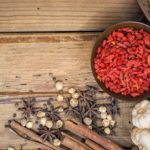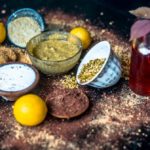Ayurveda, the traditional system of medicine in India, offers holistic approaches to various health conditions, including varicose veins. Varicose veins occur when the veins become enlarged, twisted, and often painful due to the improper functioning of the valves within the veins. Ayurveda focuses on lifestyle modifications, dietary changes, and herbal remedies to address the underlying imbalances in the body. However, it’s important to consult with a qualified Ayurvedic practitioner before starting any treatment. Here are some general Ayurvedic recommendations for managing varicose veins:
1. Dietary Guidelines:
- Include foods that are rich in fiber to promote proper digestion and prevent constipation.
- Consume a diet high in fruits and vegetables, particularly those with antioxidant properties.
- Avoid excessive intake of spicy and salty foods, as they may contribute to water retention and aggravate the condition.
2. Lifestyle Modifications:
- Regular exercise, especially activities that promote circulation such as walking and swimming, can be beneficial.
- prolonged periods of standing or sitting, and take breaks to move around.
- Elevate your legs whenever possible to improve blood flow.
3. Herbal Remedies:
- Triphala: This herbal formulation is known for its detoxifying properties and can help improve digestion.
- Guggul: Guggul is believed to have anti-inflammatory properties and may aid in reducing swelling and pain associated with varicose veins.
- Horse chestnut: This herb has been studied for its potential to strengthen veins and improve blood circulation.
4. Ayurvedic Therapies:
- Panchakarma: Detoxification procedures, such as Virechana (therapeutic purgation), may be recommended by Ayurvedic practitioners to remove toxins from the body.
- Abhyanga (Ayurvedic massage): Gentle massage with herbal oils may help improve circulation and reduce symptoms.
5. Yoga and Pranayama:
- Specific yoga poses, such as Viparita Karani (legs-up-the-wall pose) and Sarvangasana (shoulder stand), can promote blood circulation.
- Pranayama (breathing exercises) can help improve oxygenation and blood flow.
Remember that Ayurvedic treatments are individualized, and what works for one person may not be suitable for another. It’s crucial to consult with a qualified Ayurvedic practitioner who can assess your specific constitution (dosha) and tailor a treatment plan accordingly. Additionally, if you have severe varicose veins or underlying health conditions, it’s important to seek guidance from a medical professional.







